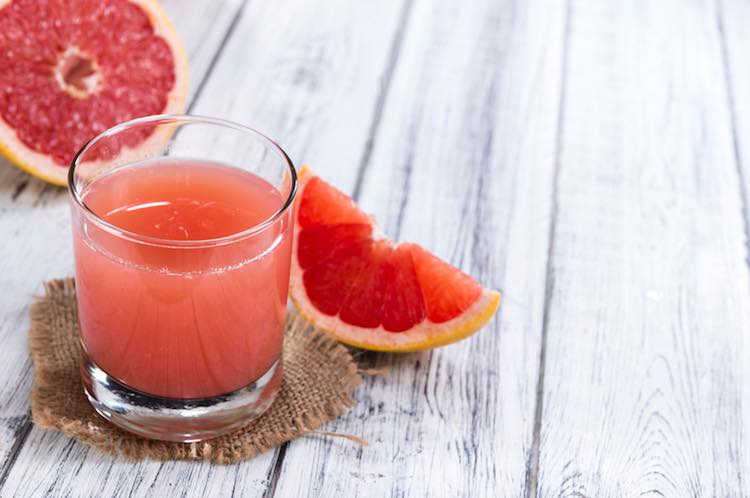Grapefruit is just one of many foods that can cause interactions with medicines. Interactions are when something interferes with how a medicine works. The interaction may result in the effect of the medicine becoming stronger or weaker or in a change in side-effects of the medicine.
How does grapefruit juice interact with medicines?
Grapefruit juice interferes with enzymes responsible for breaking down medicines in the body. So grapefruit and grapefruit juice interactions often lead to an increase in the amount of medicine circulating in your body. These increased blood levels of your medicine can be dangerous and may increase the effect of your medicine until there are potentially serious consequences.
For example, if a person taking some blood-pressure medicines consumes grapefruit, the concentration of their blood pressure medicines will rise in their body, and result in their blood pressure becoming dangerously lowered.
One serve is all it takes
Just one glass of grapefruit juice or one serve of grapefruit is all it takes to interfere with your medicine. It can happen even when the grapefruit is consumed at a different time from the medicine. The effect of grapefruit juice on some medicines can last for over 24 hours. Consuming it regularly will make the chance of significant interactions more likely. Seville (or bitter) orange juice and limes may also cause the same effects as grapefruit.
Common medicines that grapefruit juice interacts with
Research has shown that more than 85 medicines can interact with grapefruit, with 43 of them having potentially serious or deadly consequences. Atorvastatin (e.g. Lipitor) – the common lipid-lowering statin drug – is one of them.
Here are some common medicines that may interact with grapefruit.
- Some antihistamines, such as fexofenadine (e.g. Telfast) – in this case blood levels of fexofenadine go down and it becomes less effective.
- Statins, such as atorvastatin (e.g. Lipitor) and simvastatin (e.g. Zocor), used in cholesterol lowering.
- Calcium channel blockers, such as felodipine (e.g. Plendil) used to lower blood pressure.
- Colchicine (e.g. Colgout) used for gout.
- Sildenafil (Viagra) used for erectile dysfunction.
- Amiodarone, used for heart conditions.
- Erythromycin, an antibiotic.
How do I know if grapefruit juice will interact with my medicine?
Your pharmacist or doctor will be able to advise you whether grapefruit or grapefruit juice will interact with your medicine. This should also be stated in the Consumer Medicines Information leaflet for your medicine. This can be found in the medicines packet, or you can search for your medicine’s CMI online here. Also, your medicine container may have a sticker, warning of potential grapefruit interactions.
Drug interactions are one of the reasons it’s important to tell your doctor and pharmacist of any vitamins, herbal or food supplements you are taking.

